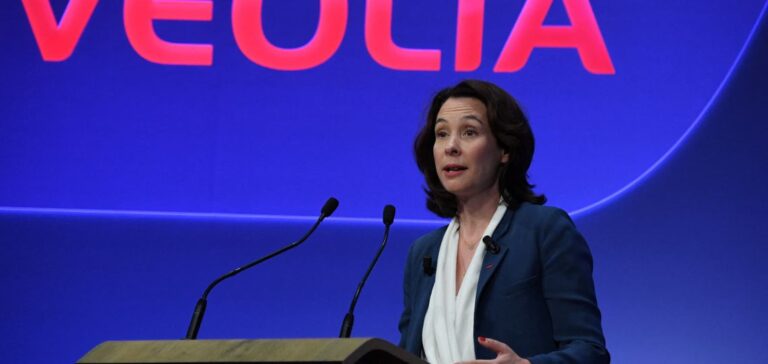The Veolia group, a specialist in water, waste and energy treatment, is introducing a “common base of social protection” for all its 213,000 employees worldwide, starting this Monday.
Veolia introduces a Global Social Protection Floor for its 213,000 employees
“From now on, there will be a social protection base for all Veolia employees in every country in the world, whatever their hierarchical level and whatever the local legislation in their country,” the group’s managing director, Estelle Brachlianoff, told AFP.
The program “offers everyone access to parental leave, health and death cover, support for caregivers and the chance to devote one day a year to a charity or environmental protection project”, says the group, which is present in over forty countries on five continents. In the United States, for example, where Veolia has 14,000 employees, “maternity leave is generally unpaid by law”, points out Ms Brachlianoff.
“It’s perfectly possible for a company not to pay a penny for the few weeks a woman takes off for maternity leave,” she explains, pointing out that any Veolia employee can now take ten weeks’ maternity leave paid for by the company.
These measures apply “to everyone, from the very first day they join Veolia”, adds Ms Brachlianoff, pointing out that 83% of the company’s employees are non-managerial, including many field workers.
Veolia Cares: A Key Decision for General Manager Estelle Brachlianoff
“Very proud” of this “Veolia Cares” plan, Ms. Brachlianoff, who took over as CEO in July 2022 from Antoine Frérot, who remained Chairman, claims it as “one of [ses] first decisions”, taken last autumn.
“Following the pandemic, we realized that there were disparities all over the world, and also perhaps difficulties of attractiveness depending on the country”, commented Florencio Martin, group union representative for the CFDT, for whom it is “a good thing to have a social minimum in all countries”.
While Ms Brachlianoff acknowledges that this plan “should have an impact on attractiveness”, she insists that “this is not the reason” she launched it, as the group was “already attractive” in her opinion. It highlights the “wealth” represented by the Group’s employees, “the driving force behind its development”. In France itself, the group employs 55,000 people.
Following the acquisition of part of its main French competitor, Suez, Veolia published in early August half-year results at an “all-time high”, with sales of over 22 billion for the first six months of 2023. Ms. Brachlianoff has not put a figure on the cost of this plan, saying only that the group “can afford it”.
Why does it matter?
From a financial point of view and in the energy market, Veolia’s initiative to set up a global social protection base for all its employees is a remarkable element. This enhances the company’s international appeal and could help attract qualified talent, improving its competitive position.
In addition, this decision demonstrates Veolia’s commitment to the well-being of its employees, which can promote staff retention and productivity. This approach can also serve as an example for other companies wishing to implement similar policies, thereby helping to raise social protection standards in the world of work.






















